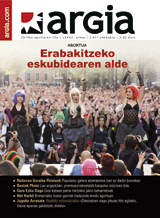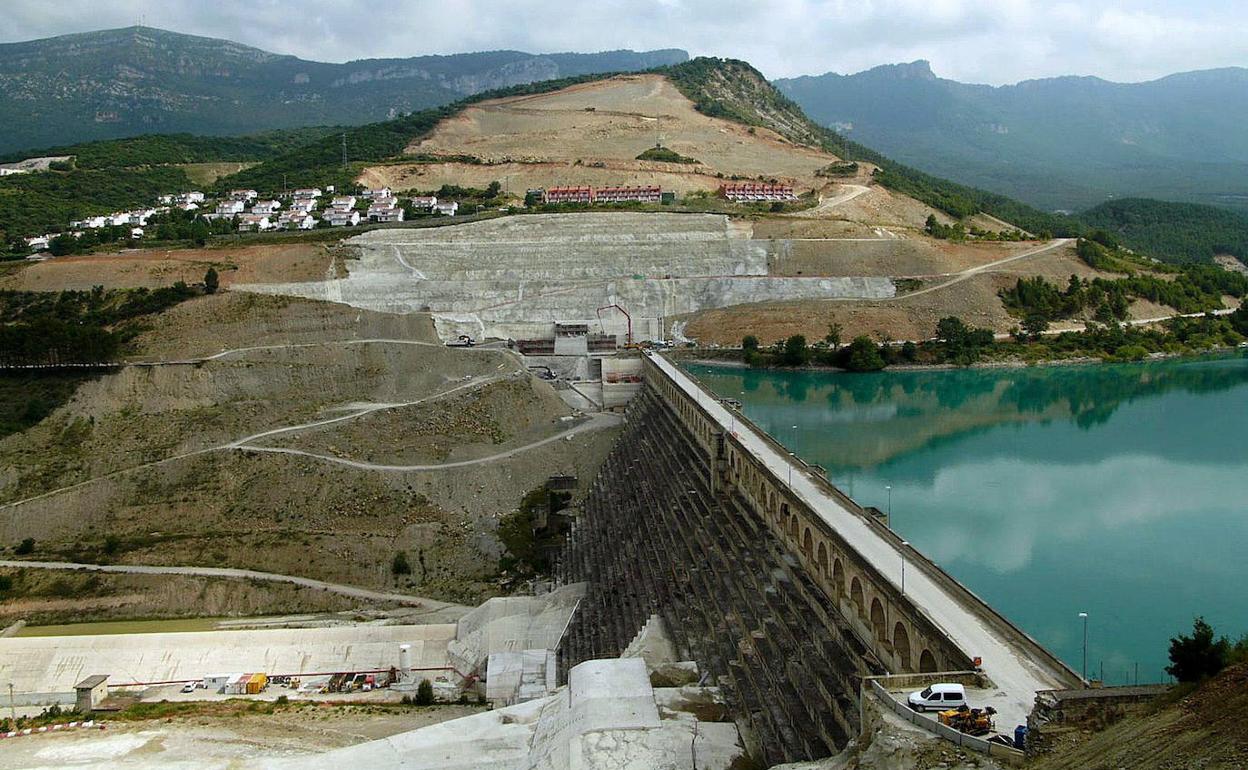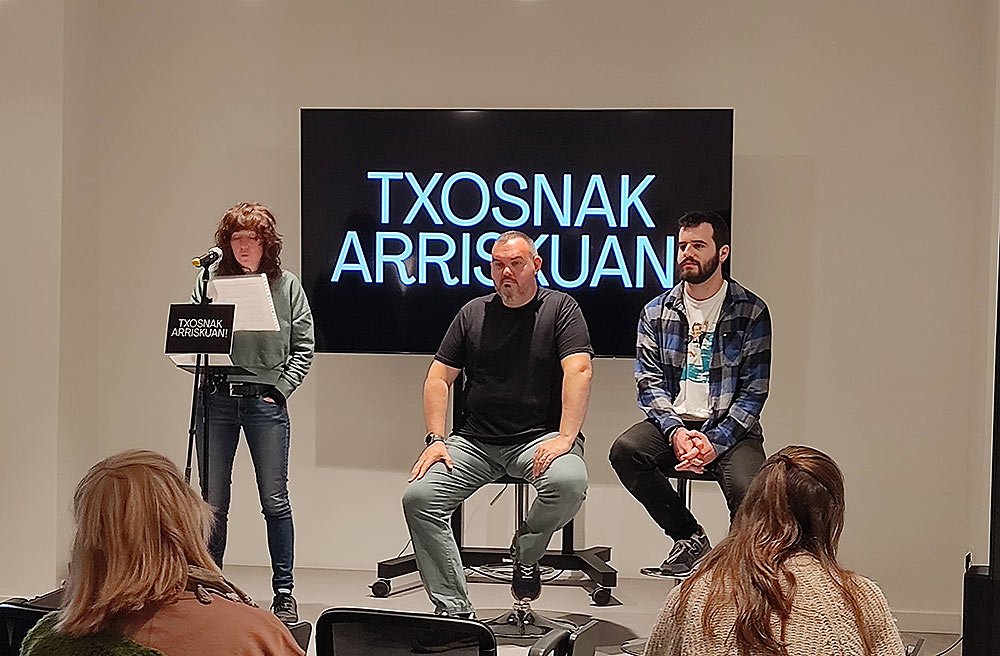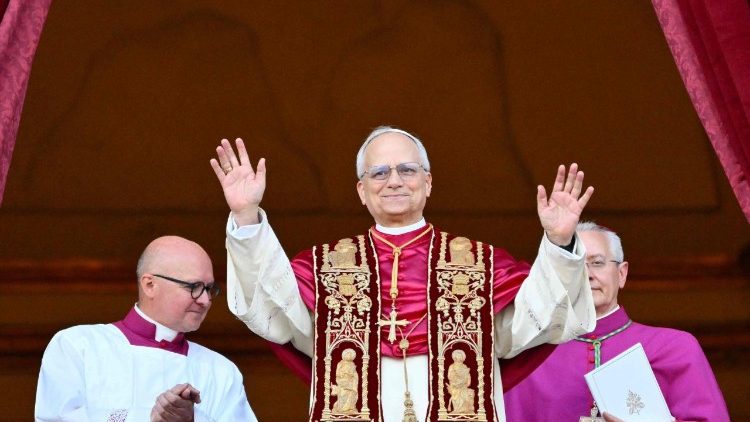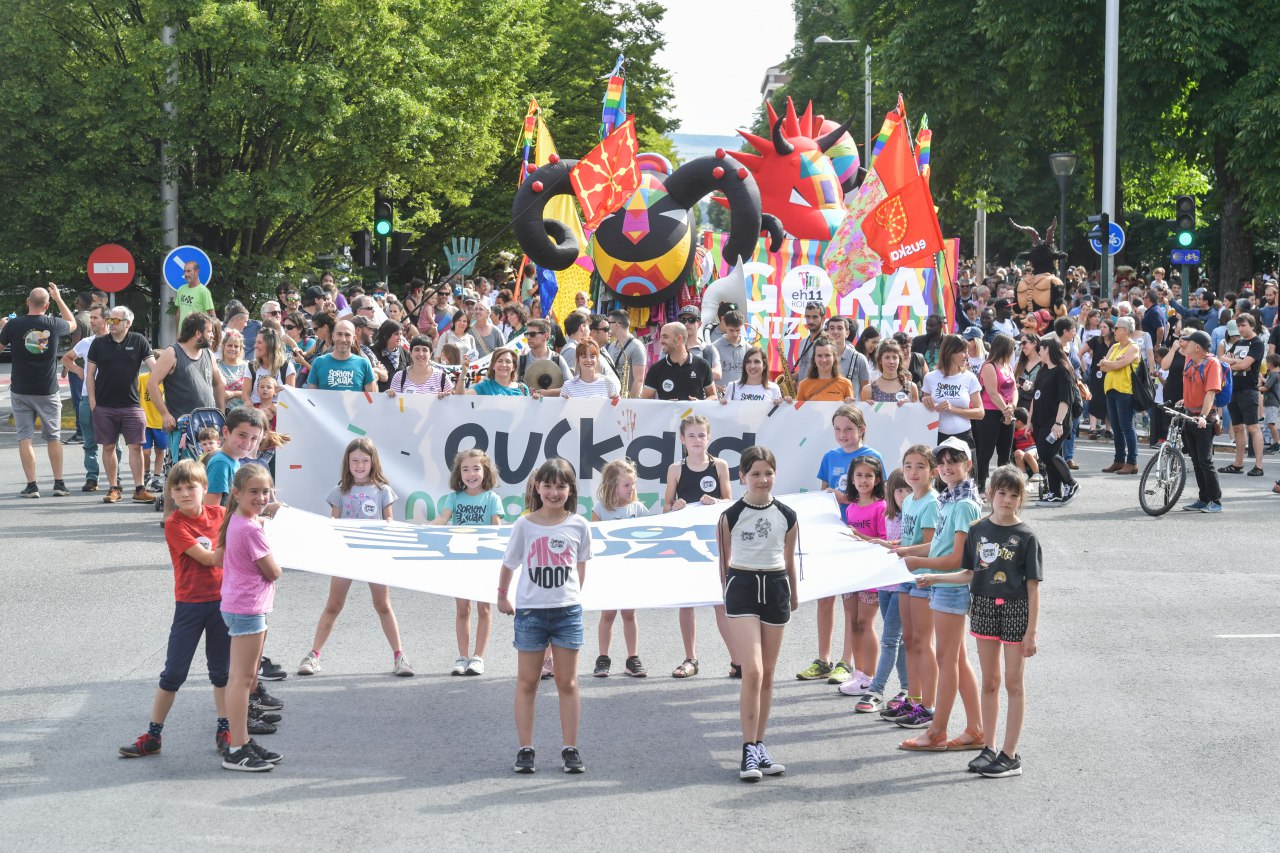Because things can be told differently.
- Four people, four names that have made a long journey through the media, are behind this photography agency: Josu Trueba Leiva, Andoni Lubaki, Gari Garaialde and Ander Gillenea. The last two of them sat by us to explain to us the development of the initiative they have just launched.
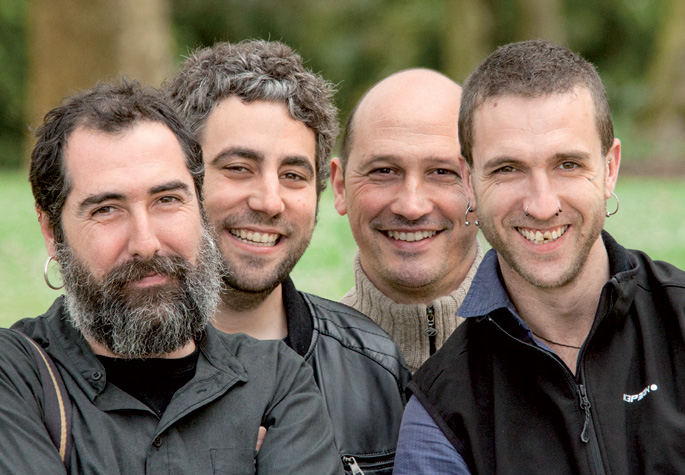
Five, I tell you. As far as I know, there are four.
Gari Garaialde. Yes, and we were only two when we decided to give him that name. In fact, this story started the day I ran out of work. Because of the crisis, there were cuts in Argazki Press and a number of people stayed in the street. I was devastated, but the chance was that the next day he called me Andoni Lubaki, very excited, because the story he did in Libya was included in the Japanese magazine News Week. I told him that I was very happy with the news, but it wasn't for euphoria. We came together to take a drink, and there came a proposal to do something collective. Then we met Ander Gillenea and Josu Trueba Leiva.
Ander Gillenea. It has always been one of those issues that we have to do but that remain to be done, to create something in a group here.
And his name?
Gari G. It was Andoni Lubaki who launched that name. Without forgetting those here, we wanted to work looking out, and we needed a name in Euskera, portable, aesthetic, that might seem in English, or at least, that wasn't difficult. There was an agency in Italy called Gracia Neri, and I was watching it, I wanted a word game, suggestive. Stok's ending evokes the bilteri or you can connect with the city, Bladivostok... In addition, all your vowels are or, as in the photo.
You are structured as cooperatives. How do you organize the work?
Ander G. We're still in it. It was not a year ago that the idea emerged, and by the time we launched the initiative it was September. It's early on for appraisals.
Gari G. We were all clear that what we would create should be everybody's and everyone's, that we would send it all. I remember that in the 1990s, collective photos became popular in France, I don't know how they were organized, but they worked very well. In any case, the first thing that is mentioned is the need for something collective and the cooperative. Without looking for more, we approached this model.
Ander G. The works that correspond to the group, either the management of the web or the activity in social networks, the edition or promotion and sale of photos, we distribute them from the beginning. However, we are in constant reconversion, because it does not know where you go, and because there are also unpleasant works, for example, paper issues.
How do you select and distribute the themes?
Ander G. Each of them addresses their own issues.
Gari G. We also wanted to mark it from the very beginning. I work as a team, yes, but independently. We don't need to do it all together, but after we do it, like the Bostok, we decided in a group how they're going to sell the works. Tackling some issues collectively is difficult and coordination is not easy either.
They don't attend the press conferences or the rest. How do you collectively decide where you should be?
Gari G. It was clear to us that the press conferences would not be our area. On the one hand, because we can't compete with Photo Dams, with EFE, or with other media. We are therefore addressing other things. We've always dreamed that, outside of that, there was something to tell, that our intention was to treat issues in a more painstaking way. The daily sale of the photo is very complicated, of course, when you have Reuters, France Press or AP as well outside. We will also work on it, but we will need other things.
Is it your author's work?
Ander G. Maybe it's not very real to think about our work like this, or at least live from it. If it does, we would like, but we will not get it overnight.
What is the scope of each?
Ander G. In principle, I'm interested in social reporting, but I'm not closed to that. For example, I would not make a report on the Chechens. It's not war my passion. Easier, I would address issues like loneliness or forgetfulness.
Gari G. I'm interested in those things that aren't in the foreground. In these cases, Ander, Josu and I have no passion for war. In this case the specialist is Andoni Lubaki.
But I'm interested in what's behind the war. In the work of Argazki Press, I rushed when the Tunisian revolution broke out. When he went from there to Egypt, I remember that I told a journalist from Berria, we are now going to Tunisia to follow the trail of what happened, this is the time.
I am interested in many things nearby, including political conflicts. After all, there is the main movement in this country, and that has many things to go into and explain in another way. For example, the interiors of the jails, the exiles, those appearing in the daily press, but counting differently.
If the rest of the work allows you to get the beans out of the pot, from time to time, they give me the hope that I can dedicate myself to the jobs you like the most. Because they won't give you money, but yes satisfaction, opportunity to do decent work ...
Can you live from photography?
Gari G. It is clear that it is difficult, and also things are complicated, but there are those who live from it, Ander has been doing so for 15 years.
Ander G. Yes, it comes out enough to live. For years I have had a great quality of life, because I have had time, among other things, to be with my family. However, photography is a very broad field.
Gari G. I've also lived from that until I ran out of the Emergency Photo. In Gipuzkoa there are not going to be a lot of people, I know about 30 people who live from press photography. How do they live? Some better and others worse. Under contract there are hardly any photographers, because the media is not interested in connection with the photographer, most are collaborators. In any case, there are people who make a lot of money.
What is being a photographer?
Gari G. A vice.
Ander G. Vice, and at the same time the trade. We are fortunate in that, because we have a job that we like.
Today, because we also have camera photos on the phone, and the tech media have also addressed that, anybody is the photographer. How do you value your work?
Ander G. Quality is the key. Make good photos.
Gari G. Before, the photo of the moment could give the money, because nobody else would. Today, the mobile phone can be taken out and done by anybody, but it's not always done. In these cases you can look for something else. This is the time to do things differently. The media wager is missing.
The photo of the day and a more elaborate photograph, the photo you've chosen from the work you've worked for several months, if they get paid equally, that doesn't go anywhere. For example, when long interviews are held. You cannot spend the whole day with a person if the photo is then paid between 10 and 15 euros.
Ander G. But there's always someone who accepts those conditions.
Gari G. We often complain about ourselves, but also about the bad customs and whims of every day: getting to the place, pasting and escaping, for example.
Ander G. For many years, people have not cared for themselves. Since I started Freelance I have rejected many jobs, for little money there was, because the conditions were bad. Others received the work under the offered conditions, were paid badly and badly, and they responded in the same way, without taking care of the photographs. I've learned that you have to do it the other way around: give quality and then ask.
Gari G. Always give quality. You have to work after valuing a lot of things, but if you've done it, do the job well.
How do you see the media?
Gari G. There's no environment. There is the crisis, the economic and the media, the paper... The picture is said to be appreciated, but I do not agree, either on paper or on the internet. On the Internet, people devour anything. I have had many discussions in this regard. For example, because of the waves of San Sebastian, some media created galleries to get everything people sent. I think it's much better to put in ten good ones, than a hundred that haven't happened, because in that drunkenness you won't get to 50. The key is the duration of people on the Internet, the time they spend on each page, so that they can be charged, but they can also work differently.
As for paper, as one theorist has said a long time ago, it should be noted in the newspapers that it is the next day. It is a disadvantage for the workers there, who still do not know how it is done, but it has to be clear that it is the next day, you cannot count things on the net as you did the same day.
Ander G. The crisis has not changed the assessment. Before there was money to take care of the image a little more, but no one was put in the editing work, not always a grounded selection was made.
Gari G. When you give quality, it won't save you, but you notice, and people look favorable. On the other hand, if you only have a space for a photo on the paper, put on one, but show us the rest on the internet. To do so, you need to adapt the web. Lack of attitude.
BRN + Neighborhood and Sain Mountain + Odei + Monsieur le crepe and Muxker
What: The harvest party.
When: May 2nd.
In which: In the Bilborock Room.
---------------------------------------------------------
The seeds sown need water, light and time to germinate. Nature has... [+]









